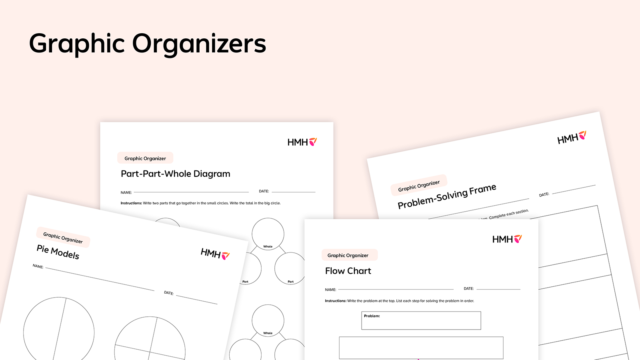
Everyone can use a little break sometimes. Maybe it’s because your students have been studying diligently or working on challenging concepts, or perhaps a holiday is approaching or one has just wrapped up. Of course, it’s also possible that your students simply need a quick break from the norm to refocus and be productive.
Whatever the reason, having a stock of fun brain break ideas on hand can be a lifesaver. Let’s review some brain breaks that you can use in your class so your students can feel re-energized and ready to go.
And hey, these brain breaks benefit teachers, too! It’s wonderful to forego your regular routines once in a while and prioritize fun.
Brain break activities for elementary and middle school students
1. The atom game
There are many variations of this game. One of them is to call out ways for students to move around the room (or outdoor space, gymnasium, etc.). Tell them to move around like cats, dinosaurs, astronauts, or movie stars. You get the idea! Then, call out a number with the word ‘atom’ (e.g., “Atom three!”). Students must then form groups of three. Think of it like musical chairs—any stray ‘atoms’ are out of the game until there are two players left. I’ve used this game in kindergarten up to eighth grade, and students at every level enjoyed it!
2. Silent ball
There are a bunch of brain breaks for the classroom that challenge students to be quiet. This one is great because you can incorporate a little physical activity and coordination while maintaining an enviably silent room. Get a soft, medium-sized ball and let students grab a spot for themselves around the classroom. The goal: don't let the ball drop. Students must continuously pass the ball to each other without talking or making noises.
This sounds a little easier than it actually is, as students have to remain focused and responsive to body language. Add in a rule that they can’t pass the ball back to the same person immediately— anything to keep the ball from staying with the same few students! Set a timer and have a five-minute round of silent ball. If students successfully keep the ball from dropping, give them a reward like 10 minutes of free time on a Friday.
3. Would you rather . . .
Have the class convene in a central area of the room and pose a few thought-provoking ‘would you rather’ questions. Would you rather never eat chocolate again or never eat ice cream again? Would you rather have the superpower of flight or invisibility? The options are endless and super fun!
Students who pick option A move to one side of the room and those who choose option B to the other. Then, everyone meets back in the middle for the next round. If you want to carry over this brain break activity to your next lesson, keep track of the results and have students chart the outcomes!
4. Dance up a storm
Freeze dance is a popular classroom game. Play a catchy tune and let students freely dance (or call out instructions to dance in particular ways, such as “Dance as if you have a sore foot” or, “Dance as if you just woke up”). Every so often, pause the music and have students freeze in place, likely in comical poses!
5. Tried-and-true activity pages
This idea is for individual students who’ve finished their work and are looking for a little break. Activities like crossword puzzles, word searches, Sudoku, and coloring are common in classrooms for a good reason. They keep students engaged and quiet while taking a mental break. Simply keep a small container filled with a stack of fun pages for students to access when needed.
Note that coloring isn't just for your youngest students! There are detailed coloring pages that can serve as a relaxation experience for older students too.
6. Card tricks
Use this one only once per class because students will know the trick after that. First, you’ll need to have one ‘magician’ in the class who’s in on the trick. You’ll draw nine ‘cards’ on your whiteboard in three rows of three cards each (simple rectangles are fine).
The student who knows the trick will step out of the room for a moment while the rest of the class quietly chooses a secret card. When the student returns, you’ll begin pointing to cards and asking if each is the chosen one. The magician will need to respond accordingly. But how will they know which card it was if they weren’t present in the room?
Ah, but therein lies the trick! You’re going to show your volunteer magician the chosen card in a sneaky way so that the other students don’t figure it out. When you select the first card to ask them about, you’ll actually touch a specific point on its surface to communicate the position of the true secret card within the three-by-three grid. Your helper can make a mental note of which card the class selected and respond correctly to all inquiries.
Notice that it doesn’t actually matter when you point to the secret card, as long as the magician understands that the first card you point to will identify the position of the secret card in the grid. From that point onward, for all other cards, you can point to any position (in fact, you should mix it up so the class doesn’t get suspicious!).
This has fascinated and stumped students from kindergarten to high school, and they have a great time trying to guess the trick!
7. Birthday line-up
Another super-quiet classroom brain break game is the birthday line-up (variations are endless here, too). Students must silently line up in the order of their birthdays. They can use gestures and hold up their fingers to denote numbers but cannot say a word. It’s awesome to see the ingenuity students use to achieve this! At the end, walk down the line and have each student say their birthday aloud to see if they were successful.
8. Teach a new skill
Do you have a random skill up your sleeve that never seems to fit with your prescribed lessons or subject area? Are you a math teacher with a cool art technique you’ve been wanting to share with your students? Carving out a space for a brain break in the form of a mini-lesson is a great way to shake things up.
For example, I learned to fingerspell in ASL as a child and have had a blast teaching students this ‘secret code language’ as a departure-from-the-norm activity over the years. The bonus is that students are learning something interesting and important and are able to see you, their teacher, in a different light. Also, odds are that this skill will be something you’re excited to share with the class—and enthusiasm is infectious!
9. Cool down
Sometimes, just stepping away from it all for a bit can be refreshing. If the weather allows, head outside for a class. Let students read in the schoolyard, have them hold group discussions under a tree, or just let them run around and burn off steam.
If you want to do something similar indoors, we have some creative classroom management ideas you could try. For example, you could have a ‘cool-off corner’ in the class: a designated space where students can unwind for a quick break as needed.
For setting some still-fun parameters on break time, use a timer to keep track of your fun.
Inject some fun with brain break games
So, if you can tell that your students are experiencing learning overload or simply itching to get up and move, test out some of these brain break activities for students. Inject some lighthearted fun into your room! Trust me, you’ll feel better, too.
This article was adapted from a blog post initially developed by the education technology company Classcraft, which was acquired by HMH in 2023. The views expressed in this article are those of the author and do not necessarily represent those of HMH.
***
Find more lesson plans and classroom resources on Shaped.
Be the first to read the latest from HMH's blog, Shaped.












